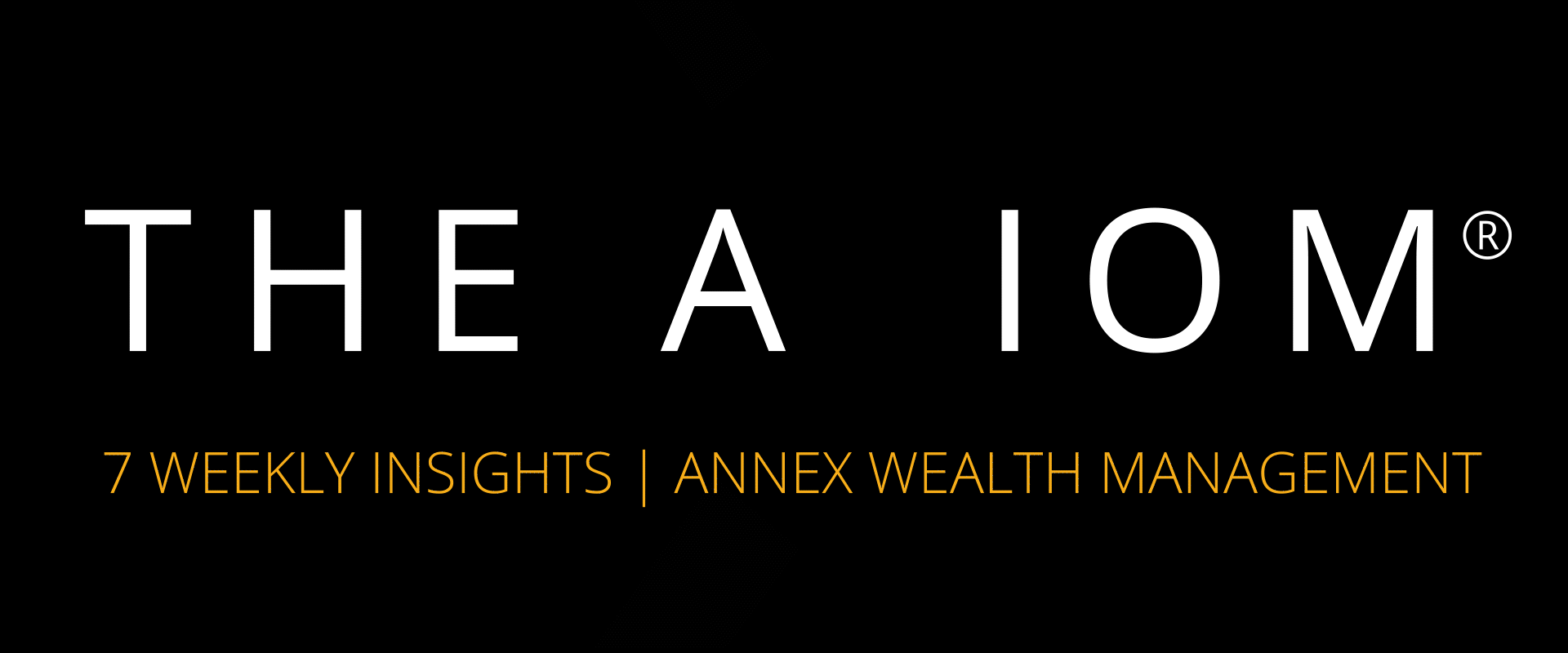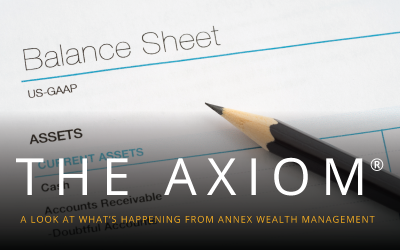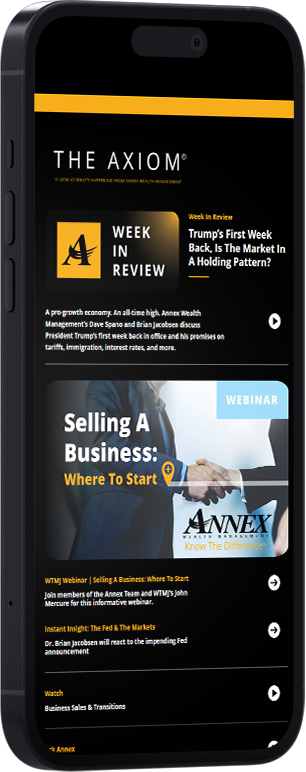
The S&P is up 100% from March 2020 lows, and despite continued Russian/Ukranian tension, the markets rallied this week. What is attracting investors, and what could cause a downturn? Annex Wealth Management’s Dave Spano and Danny Clayton discuss.

QR codes are more popular, especially since the pandemic. One advertiser ran a commercial during the Superbowl that was just a QR code onscreen for 30 seconds.
In our recent poll, we asked readers: When you see a tv commercial with a QR code, do you use it? While 61% said no, 13% answered yes, and 26% answered sometimes.
We’ve already traded paper currency for card readers, and now QR codes allow for completely touchless transactions. A recent report published by Allied Market Research indicates that the global QR codes payment market is on track to reach $35.07 billion by 2030.
When asked: When you see an advertisement with one, do you try them out? Only 2% of readers said yes, 76% answered no, and 22% answered sometimes.
Why are so many hesitant to try this new technology? After all, they’re totally safe right? Not totally.
Unfortunately, the codes are susceptible to hacking, and crooks can easily create their own to fool consumers. Scanning a QR code from an untrustworthy source could open a webpage that causes your phone to download malware without warning. For example, what if the code you just scanned in a bus stop ad was actually a sticker someone put over the original QR code in order to steal your personal information?
With any new technology, it will take tweaking to ensure consumer safety as the market grows. If you do try out a QR code for yourself, make sure it’s from a trusted source.
https://www.e-complish.com/blogs/qr-codes-catching-on-fast/
https://www.hivesystems.io/blog/the-dangers-of-qr-codes
BACK TO TOP ↑
Know What You Own: Equities

This week’s MoneyDo is to Know What You Own when it comes to US Equities. It sounds rudimentary, but we find that many folks neglect to track what’s in their portfolio or haven’t looked in months or years.
In the United States, investors are constantly bombarded with information on a 24-hour news cycle. It can cause two dangerous behaviors:
1) a sense that staying aware of market headlines means you know what you own and knowing how your portfolio will behave.
2) a sense of being overwhelmed that leads to paralysis. In this case, you do not know what to do with all the information, or where to start, so you do nothing.
Unfortunately, not knowing what you own can lead to your portfolio being “out of balance” when you had not planned to be.
Maintaining A Balanced Portfolio
Maintaining a balanced portfolio is one of the key tenets guiding Annex Wealth Management’s investment philosophy. A balanced portfolio attempts to avoid being “overweight” in any specific investment type unless you have deliberately chosen that strategy.
If you’re managing your own portfolio and seeking to maintain a balanced portfolio, Annex Wealth Management’s Investment Committee suggests you “know what you own” by performing rudimentary research into your investments.
Knowing what you own requires consistent periodic research. Factors like market volatility and the type of investments you hold could each cause a portfolio that once was balanced to become unbalanced over time.
Look Closely At Your Mutual & Exchange Traded Funds
Remember – you may be invested in US Equities in several different ways, like mutual funds, exchange-traded funds, or individual stocks you have picked.
Mutual funds and exchange-traded funds use a similar approach. They both pool investor money into one fund and then allocate that fund into multiple investments. They’re popular tools because it’s easier for most investors to get a diversified group of investments without having to buy them each individually.
Where mutual funds and exchange-traded funds differ is how each manages its investments. Most mutual funds are considered active investments: they employ a fund manager who makes investment choices based on the parameters of that mutual fund. The fund manager’s overall long-term goal is to beat the representative index tied to their mutual fund.
Most exchange-traded funds are considered passive investments. Instead of trying to beat the representative index, their goal is to replicate the index.
You will find that actively managed mutual funds often charge higher fees in order to provide for the resources needed to accomplish their goals. Exchange-traded funds generally have significantly lower costs, since once they build their fund to replicate their index, they only need to make sure they stay inline.
What does this have to do with balancing your portfolio? You may discover that a mutual fund you own, and an exchange-traded fund are invested in some of the same investments. While you may have thought you were balancing your portfolio by investing in different mutual- and exchange-traded funds, you really were unintentionally overweight in a particular sector or investment.
Study Your Individual Stock Holdings
U.S. Equities may be part of the individual stocks you own. Over the years, competition between brokerage firms has lowered costs to the extent of no transaction fee mutual funds and individual equities, making it easier for an individual investor to have access to the stock market.
However, more access to the stock market does not necessarily make it easier to pick the right stock or to “beat” the markets. When it comes to stocks, emotion is sometimes a big driver on buying and selling, making the correct decision difficult to make. Remember back to March of 2020, at the beginning of the pandemic. Many people were fearful of the virus and the potential effects on the economy, which drove many people to sell out of all of their stocks and go to cash. Letting this emotion get the best of you resulted in missing out in one of the fastest market recoveries of all time.
Looking At Your Portfolio Holistically
As you research and begin to understand what you own, you’ll be faced with some portfolio-wide decisions. Consider the challenging questions, like when you should use a mutual fund vs an exchange-trade fund. Make sure to spend the time needed to research individual stocks and develop a defined buy and sell strategy.
You may believe you are “buying local” by investing in a U.S. equity, but in many cases, the shares you’ve purchased are likely affected by global concerns. For example, buying an American company like Apple, which has a huge reliance on products from China, means you should stay aware of more than just American headlines.
And many American companies that sell abroad will be affected by currency exchange risk. Changes in the exchange rate between foreign currency and the U.S. dollar can increase or reduce your return, depending on how reliant they are on overseas sales.
Perhaps the toughest part of this entire process is setting aside time through the year to regularly perform your research. Ultimately, vigilance pays off – you’ll be better equipped to determine if you’re over- or under-allocating to any sector of the market.
While being over-invested in a “hot” sector could lead to some success, in the event of a pullback, you may find your unbalanced portfolio causing pain.
By knowing what you own and considering how it aligns with your financial plan, you can strive for more diversity and a balanced portfolio.
If this exercise is more work than you can handle, and/or you need a financial plan to help guide and determine your portfolio allocation, consider sitting down with us at Annex Wealth Management, where we perform an in-depth portfolio review to understand your current holdings.
BACK TO TOP ↑

BACK TO TOP ↑
BACK TO TOP ↑
UPCOMING EVENTS →
BACK TO TOP ↑





